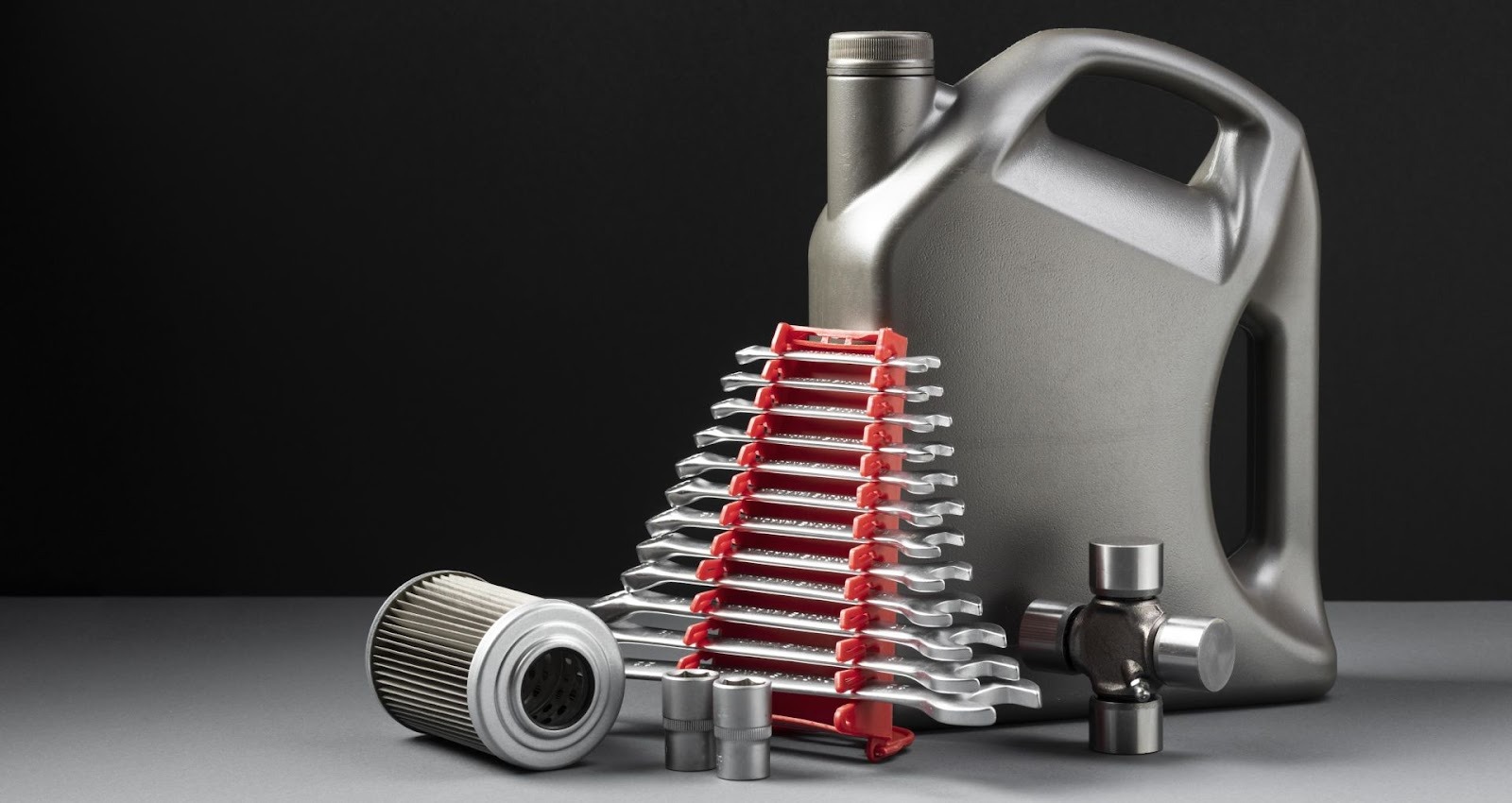What Are the 3 Types of Engine Oil? A Complete Guide

Before signing paperwork on your next vehicle, understanding what are the 3 types of engine oil can save you hundreds of dollars annually in unexpected maintenance costs. The engine oil type your future car requires directly impacts your ownership budget, depending on whether the vehicle needs:
- Conventional
- Synthetic
- Synthetic blend oil.
Smart car buyers research oil requirements before purchasing to avoid surprise costs that strain monthly budgets.
Make informed vehicle decisions with expert guidance on total ownership costs. 👉 Contact CarWise LA | ☎ +1 (310)-694-0575 | Compare maintenance budgets across vehicle options
Understanding Engine Oil Types for Your Vehicle

When shopping for your next car, the sticker price represents just the beginning of your financial commitment. Engine oil type determines ongoing maintenance frequency and costs that compound over years of ownership. A vehicle requiring conventional engine oil might seem economical upfront but demands oil changes every 3,000-5,000 miles, while cars using synthetic oil stretch intervals to 7,500-15,000 miles, affecting your annual service budget.
According to automotive maintenance studies, oil-related expenses represent approximately 20% of routine maintenance costs for vehicles over five years old. Before committing to a specific make and model, research whether it requires conventional oil, synthetic oil, or synthetic blend oil. These figures help you calculate true ownership costs beyond monthly payments, insurance, and fuel.
Conventional Engine Oil: The Traditional Choice

Conventional engine oil, refined directly from crude petroleum, powers many older vehicles and budget-friendly models. When evaluating used cars or economy vehicles, you'll likely encounter conventional oil requirements that create the most frequent maintenance schedule.
It requires changes every 3,000–5,000 miles and this traditional lubricant costs $35-60 per change at service centers, appearing affordable until you calculate the four to six annual changes Los Angeles drivers typically need.
Before purchasing a vehicle that requires conventional engine oil, calculate the true annual cost based on your expected driving patterns. A Los Angeles commuter covering 12,524 miles yearly needs five conventional oil changes at approximately $50 each, totaling $250 annually just for oil maintenance. Over a typical five-year ownership period, that's $1,250 in oil changes alone.
Consider these ongoing costs carefully when comparing vehicle options. 👉 Contact CarWise LA | ☎ +1 (310)-694-0575 | Get expert guidance on total ownership budgeting
Best Synthetic Engine Oil for Modern Vehicles

Most vehicles manufactured after 2015 require the best synthetic engine oil, fundamentally changing your maintenance budget planning. When shopping for newer cars, expect synthetic oil change costs of $65-125 per service—significantly higher than conventional oil. However, synthetic oil's extended 7,500-10,000 mile change intervals mean fewer annual services, creating unexpected savings that make these vehicles more economical than they initially appear.
Before committing to a modern vehicle purchase, understand its synthetic oil requirements and calculate actual annual costs. That same 12,524-mile-per-year Los Angeles driver needs nearly two synthetic oil changes annually at approximately $95 each, spending $190 yearly compared to $250 for conventional oil.
An AAA study found that synthetic oil provides 47% better engine protection than conventional oil. Turbocharged engines, European brands, and most new Honda and Toyota models require synthetic oil.
Synthetic Blend Engine Oil: The Middle Ground

Synthetic blend engine oil combines conventional base oil with synthetic additives, creating a compromise option some manufacturers specify for mid-range vehicles. When researching pickup trucks, SUVs, or certain domestic brands, you might encounter synthetic blend requirements that cost $45-75 per change with 5,000-7,500 mile intervals.
Before purchasing a vehicle requiring synthetic blend engine oil, calculate whether this compromise delivers value for your driving patterns. At 12,524 miles per year, Los Angeles drivers would need three synthetic blend changes at $60 each, spending $180 yearly—matching synthetic oil costs without the extended protection.
This middle-ground option positions itself between conventional and full synthetic in both price and performance characteristics. Many automotive experts suggest this middle ground rarely makes financial sense, as you're paying near-synthetic prices for conventional-level change frequency.
Choosing the Right Oil Type for Your Budget

Smart vehicle shopping requires calculating total ownership costs, not just monthly payments and insurance premiums. Engine oil requirements significantly impact your maintenance budget over five to ten years of ownership. Before visiting dealerships or browsing online listings, determine how much you can realistically allocate to oil changes annually, then research which vehicles fit that maintenance budget alongside your payment capacity.
New vehicles eliminate oil selection guesswork entirely with manufacturer-specified requirements and warranty coverage. When you purchase or lease a new vehicle through CarWise LA, you receive clear documentation of required oil type, change intervals, and often complimentary maintenance for the first 25,000-36,000 miles. Modern vehicles feature oil life monitoring systems that calculate optimal service timing based on actual driving conditions, removing anxiety and allowing accurate budget planning from ownership day one.
Conclusion
Understanding what are the 3 types of engine oil—conventional, synthetic, and synthetic blend—empowers you to make informed vehicle purchase decisions based on complete ownership costs:
- Conventional engine oil - requires frequent changes that add up over years
- Synthetic engine oil - delivers extended intervals that often create savings despite higher per-service costs.
- Synthetic blend engine oil - attempts a middle ground but rarely provides optimal value.
Armed with oil requirement knowledge, you can make informed comparisons between similar vehicles. Two SUVs might have identical sticker prices, but one requiring conventional oil every 5,000 miles costs $250 annually while another using synthetic oil with 7,500 mile intervals costs $190 yearly—a $300 difference over five years. These calculations help you choose vehicles that fit both your initial budget and long-term financial capacity.
Let CarWise LA guide you to vehicles with transparent, manageable maintenance costs. 👉Contact CarWise LA | ☎ +1 (310)-694-0575 | Make smarter vehicle decisions
FAQs
What are the 3 types of engine oil?
The three main types are conventional engine oil refined from crude petroleum, synthetic engine oil engineered with uniform molecules, and synthetic blend engine oil combining both. Before buying a vehicle, verify which type it requires to accurately budget for maintenance costs throughout ownership.
How do I know what oil my future car needs?
Check the manufacturer's website for maintenance specifications, review the owner's manual for your desired model, or ask the dealership service department. Most vehicles manufactured after 2015 require synthetic oil, while older models often use conventional oil. Verify requirements before purchasing.
Does engine oil type affect my car budget?
Yes, significantly. Vehicles requiring conventional engine oil need changes every 3,000-5,000 miles ($250 annually), while synthetic oil vehicles require service every 7,500-10,000 miles ($190 annually). These differences compound over years of ownership, affecting total cost calculations when comparing vehicles.
Should I avoid cars that need synthetic oil?
No—synthetic oil vehicles often cost less annually despite higher per-change prices due to extended intervals. Calculate total annual costs based on your expected mileage, not per-service prices. Many modern vehicles require synthetic oil and include warranty-covered maintenance that eliminates costs during early ownership.
Can I use cheaper oil than recommended?
No. Using incorrect oil type voids warranties, accelerates engine wear, and risks costly repairs that far exceed oil change savings. Modern engines designed for synthetic oil suffer damage from conventional oil use. Always use manufacturer-specified oil type to protect your investment and maintain coverage.
What is the cheapest oil type long-term?
Synthetic engine oil typically delivers lowest total cost through extended change intervals, fewer service appointments, and superior engine protection that prevents expensive repairs over ownership duration.
How much should I budget for oil changes?
Budget $150-300 annually for vehicles requiring conventional oil, $130-250 for synthetic oil vehicles, and $135-225 for synthetic blend requirements. Calculate based on your expected annual mileage and manufacturer-recommended change intervals to accurately plan maintenance expenses when comparing vehicle options.
Do new cars come with free oil changes?
Many new vehicle warranties include complimentary oil changes for 2-3 years or 25,000-36,000 miles, eliminating maintenance costs during early ownership. Verify specific coverage when comparing new vehicles, as this benefit significantly impacts initial ownership expenses and makes budget planning easier.
What vehicles require synthetic blend oil?
Some pickup trucks, SUVs, and mid-range domestic vehicles specify synthetic blend engine oil. However, this middle-ground option rarely appears in new vehicle requirements. Most manufacturers specify either conventional oil for older designs or full synthetic for modern engines, making blend requirements increasingly uncommon.
Should oil type influence my car choice?
Yes, when comparing similar vehicles at similar prices. Research oil requirements for models you're considering to understand complete ownership costs. A vehicle requiring frequent conventional oil changes might cost $1,2500 more over five years than a comparable model with synthetic oil requirements and extended intervals.
Related Articles

Best MPG Cars: Compare top fuel-efficient models for 2026

Car Lease Deals. Learn negotiation strategies, optimal timing, and tips to lower your payments.

Discover what credit score you need for a car loanl. Get expert guidance
Subsribe to receive our exclusive list of great deals for the month.
Don't worry, we only send great deals. No spam.



